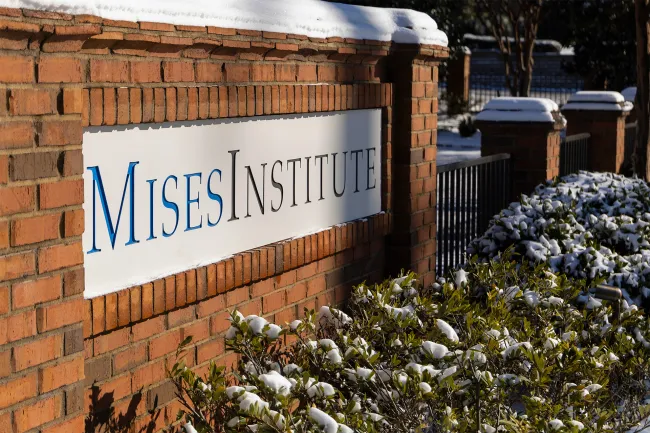

Gov. Newsom Appeals to the Sunk Cost Fallacy to Promote the Failed Bullet Train

MMT Is Wrong about the History of the Origins of Money

Inflation: Looking Beyond Aggregates

Why We Need Deflation and Higher Interest Rates

Real ID Is Not About Keeping You Safe

The Fallacy of Optimal Tariffs

California’s Bullet-Train Delusion
California economist and resident/victim William Anderson joins us to talk about the absurdity of California's bullet train plan, and how it ignores economic realities.

The Method Behind Real Economic Thinking
Jonathan Newman joins Bob Murphy to explore what economics really is, why it matters, and how the revamped Mises Academy is helping teach it the right way.

Powell, Trump, and the Austrian Business Cycle Time Bomb
Mark Thornton cuts through the noise to explore the real economic threats facing America.

Trump’s First 100 Days: The Good and the Bad
Historian Chris Calton joins Ryan McMaken to discuss both the upsides and the downsides of Trump's first 100 days.
Research Fellowships at the Mises Institute in Auburn, Alabama, are available to graduate students and post-docs interested in scientific research in the Austrian school and libertarian political economy.
Join us in Auburn for the Revisionist History of War Conference in May.
In May 2025, the Mises Institute will hold its next Mises Book Club, a program that promotes deep reading in Austrian economics.
The Rothbard Graduate Seminar provides an intense study of Misesian and Rothbardian economic analysis, along with the substantive conclusions of that research in related fields.












